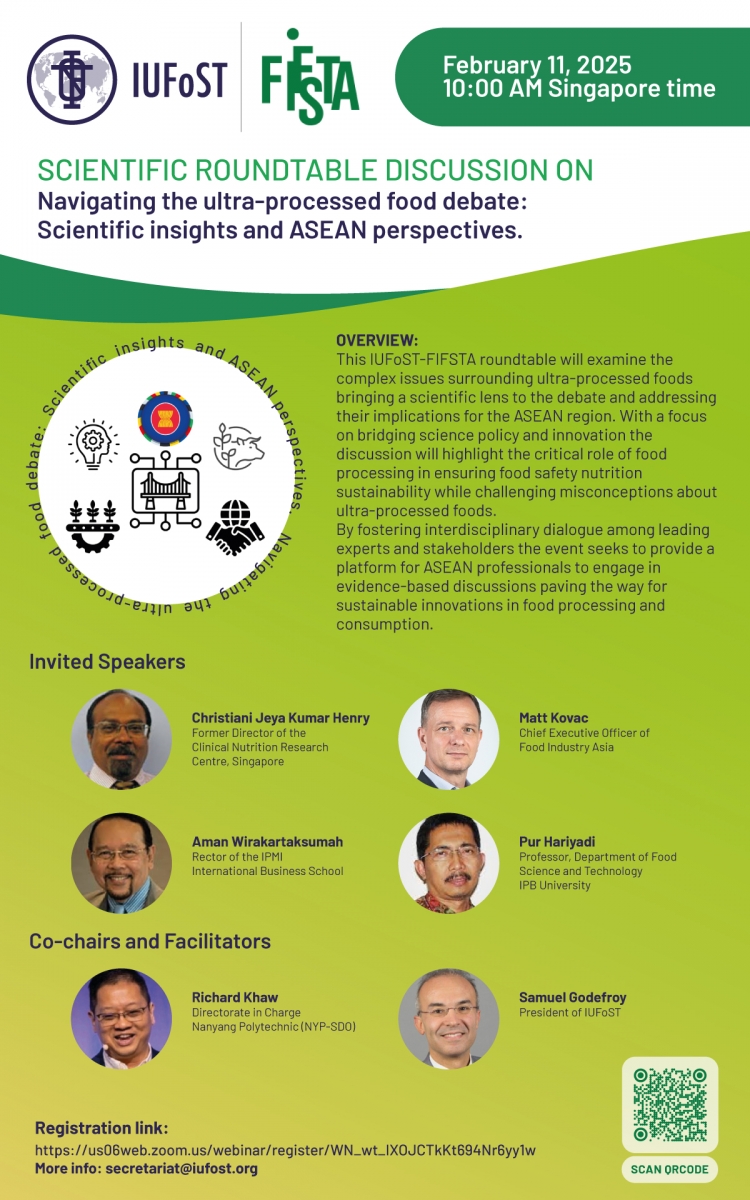"Navigating the ultra-processed food debate: Scientific Insights and ASEAN perspectives" - IUFoST/FIFSTA Scientific Roundtable Discussion on February 11, 10.00 Singapore, GMT+8

In a continuation of the work begun by the IUFoST Task Force on Food Processing for Nutrition, Diet and Health, IUFoST is organising its second Scientific Roundtable Discussion (SRD) of this new year. This one, jointly planned with our regional grouping FIFSTA, Federation of Institutes of Food Science and technology of the ASEAN, looks at the ultra-processed food debate from the ASEAN perspective with international scientific experts. Navigating the ultra-processed food debate: Scientific Insights and ASEAN perspectives - IUFoST/FIFSTA Scientific Roundtable Discussion on February 11, 10.00 Singapore, GMT+8
Registration Link. Join us!
IUFoST working to strengthen food regulatory science

IUFoST is introducing or collaborating with member countries to introduce 3 papers at the meeting of the FAO/WHO Codex Coordinating Committee for North America and the South West Pacific (CCNASWP17) this week, through its disciplinary group GFoRSS. In addition, IUFoST was requested to lead a side event "Supporting the Development of the Food Laboratory Community in the South West Pacific" that took place on Thursday.
Agenda item 3: Update on the methods of analysis of scopoletin in noni fruit juice (submitted by Samoa, with the support of New Zealand, Australia and IUFoST).
Agenda item 4.1: Discussion paper on use of criteria for evaluation and prioritisation to resolve food safety and quality challenges, identified by the region.
Paper developed by New Zealand with support from GFoRSS/IUFoST.
Agenda item 10: Discussion paper on traditional underground oven cooking in the South West Pacific: food safety considerations - Paper prepared to support Vanuatu by Dr. Silvia Dominguez (PARERA - ULAVAL/GFoRSS) and IUFoST/GFoRSS experts.
This last paper may lead to a new area of work under CCNASWP with our possible continued leadership to promote hygienic conditions of food production with a focus on traditional methods of production.
These contributions exemplify IUFoST leadership in contributing effectively to international food standard setting activities.



